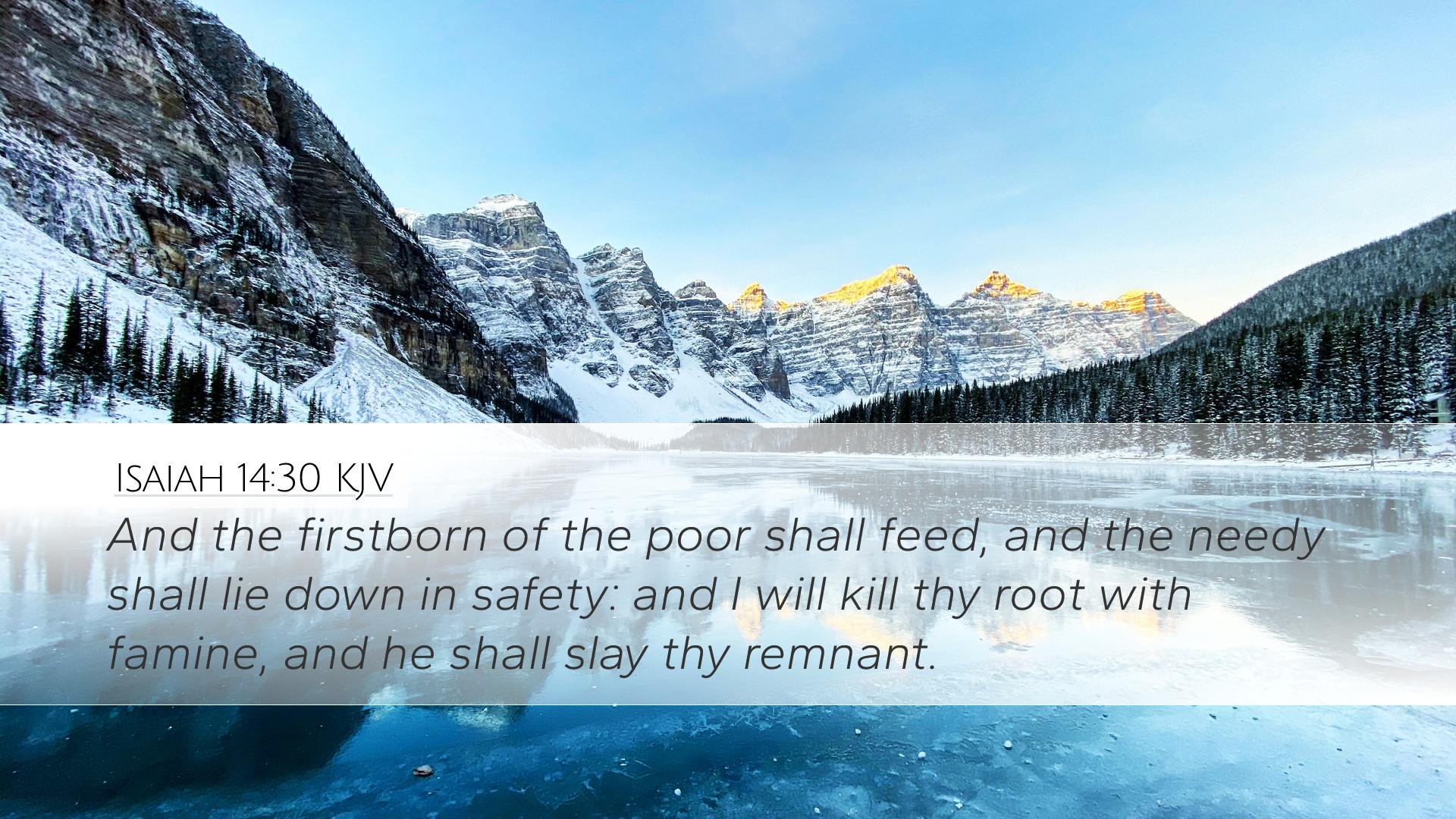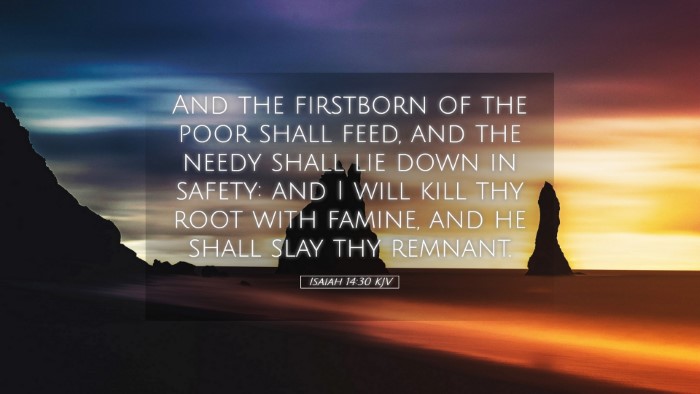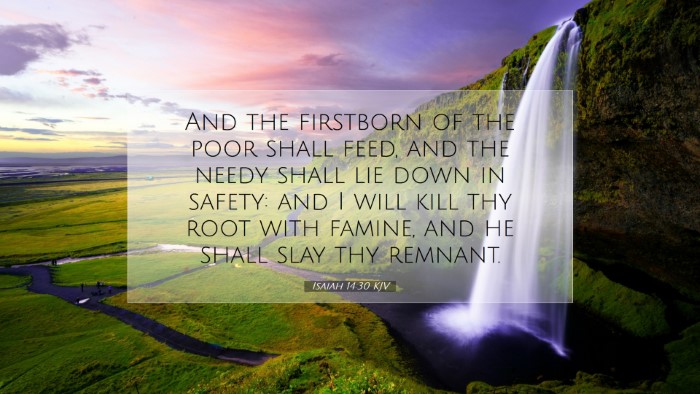Commentary on Isaiah 14:30
Verse Overview: Isaiah 14:30 states, "And the firstborn of the poor shall feed, and the needy shall lie down in safety: and I will kill thy root with famine, and he shall slay thy remnant." This verse is part of a poetic passage that addresses the fate of the proud and powerful, and contrasts it with the humble and needy.
Contextual Background
The Book of Isaiah is often classified among the major prophetic works in the Old Testament. Isaiah prophesied during a time of political upheaval and moral decline in Israel, calling the people to repentance and foretelling the advent of divine judgment along with eventual restoration.
Textual Analysis
This verse is nestled within a larger context wherein Isaiah speaks of the fall of the king of Babylon, symbolizing pride and oppression. The juxtaposition of the firstborn of the poor and the destruction inflicted upon oppressors demonstrates God's justice and mercy.
Key Themes:
- Divine Justice: God promises to lift up the lowly while bringing down the proud.
- Hope for the Needy: There is comfort and assurance for those who suffer under tyranny.
- Judgment on the Wicked: The prophecy foretells famine and destruction for the oppressors.
Insights from Matthew Henry
Matthew Henry interprets this verse as a declaration of hope amid despair. He highlights how God prioritizes the welfare of the needy, showing their eventual deliverance from their plight. Henry notes that "the firstborn of the poor" signifies not merely the firstborn, but the chief or most prominent among the poor—indicating a restoration of status.
Henry emphasizes that the 'needy shall lie down in safety,' illustrating God's promise to protect the vulnerable from harm and provide for them. The reference to "I will kill thy root with famine" strongly conveys divine retribution against adversaries of God's people.
Insights from Albert Barnes
Albert Barnes provides a detailed exegesis of the term "firstborn of the poor." He suggests it represents both a literal and symbolic meaning—highlighting the acknowledgment of their suffering and an encouragement for the marginalized. Barnes stresses the transformative nature of God's intervention, where the poor, often overlooked or oppressed, will experience a divine reversal.
Barnes also interprets the closing line of the verse as a metaphor for the complete eradication of Babylon's influence and power, stating that God's judgment is decisive and will ensure that no remnant of the oppressor can prosper.
Insights from Adam Clarke
Adam Clarke emphasizes the stark contrast between the rich and the poor as portrayed in this passage. He notes that the imagery of feeding and safety speaks to a future where justice prevails, and the needy are cared for as a priority. Clarke interprets this salubrious condition as indicative of God's favor and blessings upon the poor who have suffered.
Clarke acknowledges the severity of God's judgment on the proud, illustrating that famine signifies not just lack of food but also spiritual desolation for those who have marginalized others. The root of the oppressor being cut off is indicative of total annihilation, emphasizing God's complete sovereignty over human affairs.
Theological Implications
This verse encapsulates several rich theological truths crucial for understanding God's character:
- God's Sovereignty: The assurance that God controls the destinies of nations and individuals.
- The Value of the Marginalized: A reaffirmation of God's continuous advocacy for the poor and oppressed.
- Ultimate Justice: Assurance that, despite present suffering, there will be divine retribution and restoration.
Practical Applications
For pastors and teachers, Isaiah 14:30 serves as a profound reminder to hold up the dignity of the poorest among us and advocate for justice. The prophetic assurance that God cares for those in desperation fuels the call to social justice within the church.
Similarly, for congregants and laypeople, this verse offers comfort in hard times, affirming that their suffering does not go unnoticed. It encourages believers to trust in God’s timing and justice, positioning them to act in faith and service to others.
Conclusion
Isaiah 14:30 serves as a pivotal reminder of God’s character: He is a God who upholds justice, cares for the needy, and judges the proud. By reflecting on the insights of Matthew Henry, Albert Barnes, and Adam Clarke, one encounters a scriptural depth that challenges believers to grasp the profound implications of God's sovereignty and love for the marginalized.


